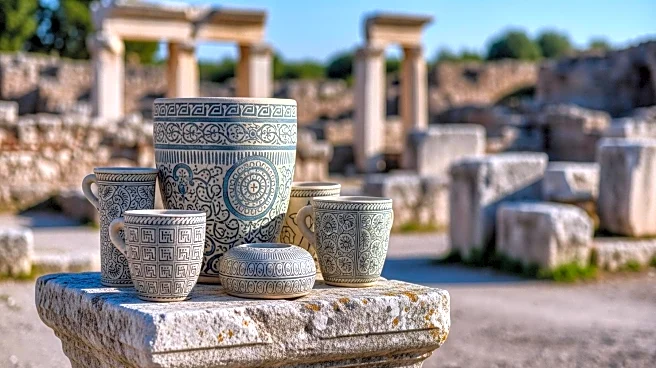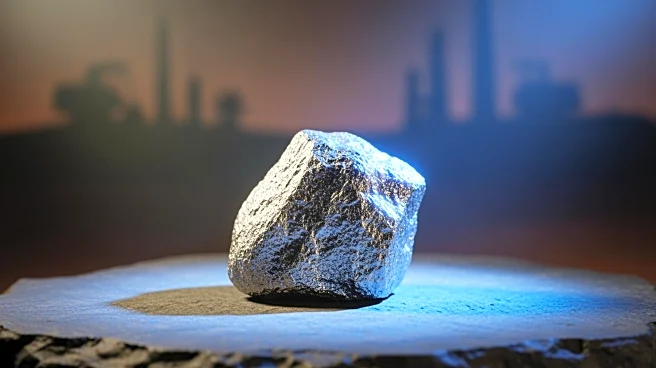What's Happening?
Archaeologists in Turkey have discovered 60 ancient tombs in the city of Colossae, located in the southwestern Denizli province. These tombs, dating back approximately 2,200 years, provide a rare insight into the burial practices and spiritual beliefs of ancient societies. The excavation, led by Barış Yener, has revealed what is believed to be the largest necropolis in Anatolia, featuring rock-cut, trough-shaped tombs. The findings include skeletal fragments and artifacts that offer valuable information about the funerary customs of the time. The site is strategically located near natural travertine rock formations, which were used to preserve agricultural land, reflecting the ancient inhabitants' understanding of their environment.
Why It's Important?
This discovery is significant as it enhances the understanding of ancient Anatolian societies, their burial customs, and spiritual beliefs. The presence of amulets and charms in the tombs suggests a strong belief in protective and healing powers, indicating the cultural importance of magic and talismans. The findings also highlight the interplay between religion, land use, and daily life in ancient times. The historical context of Colossae, once a prominent trade center known for wool and textile production, adds to the importance of this discovery. The city’s decline due to natural disasters underscores the fragility of ancient civilizations.
What's Next?
The ongoing excavations in Colossae are expected to continue revealing artifacts and information that fill critical gaps in the region’s history. The project, part of Turkey’s Ministry of Culture and Tourism’s Heritage for the Future Project, aims to further explore the site’s archaeological significance. Future findings may provide deeper insights into the social and economic aspects of ancient Colossae, contributing to a broader understanding of the region’s historical development.
Beyond the Headlines
The discovery of these tombs not only provides historical insights but also raises questions about the ethical considerations of archaeological excavations. The handling of human remains and cultural artifacts requires sensitivity and respect for the descendants of ancient societies. Additionally, the preservation of such sites poses challenges, as modern development and tourism can threaten their integrity. Balancing archaeological research with cultural preservation and ethical considerations remains a critical aspect of such discoveries.










